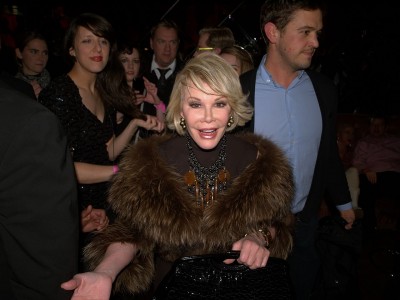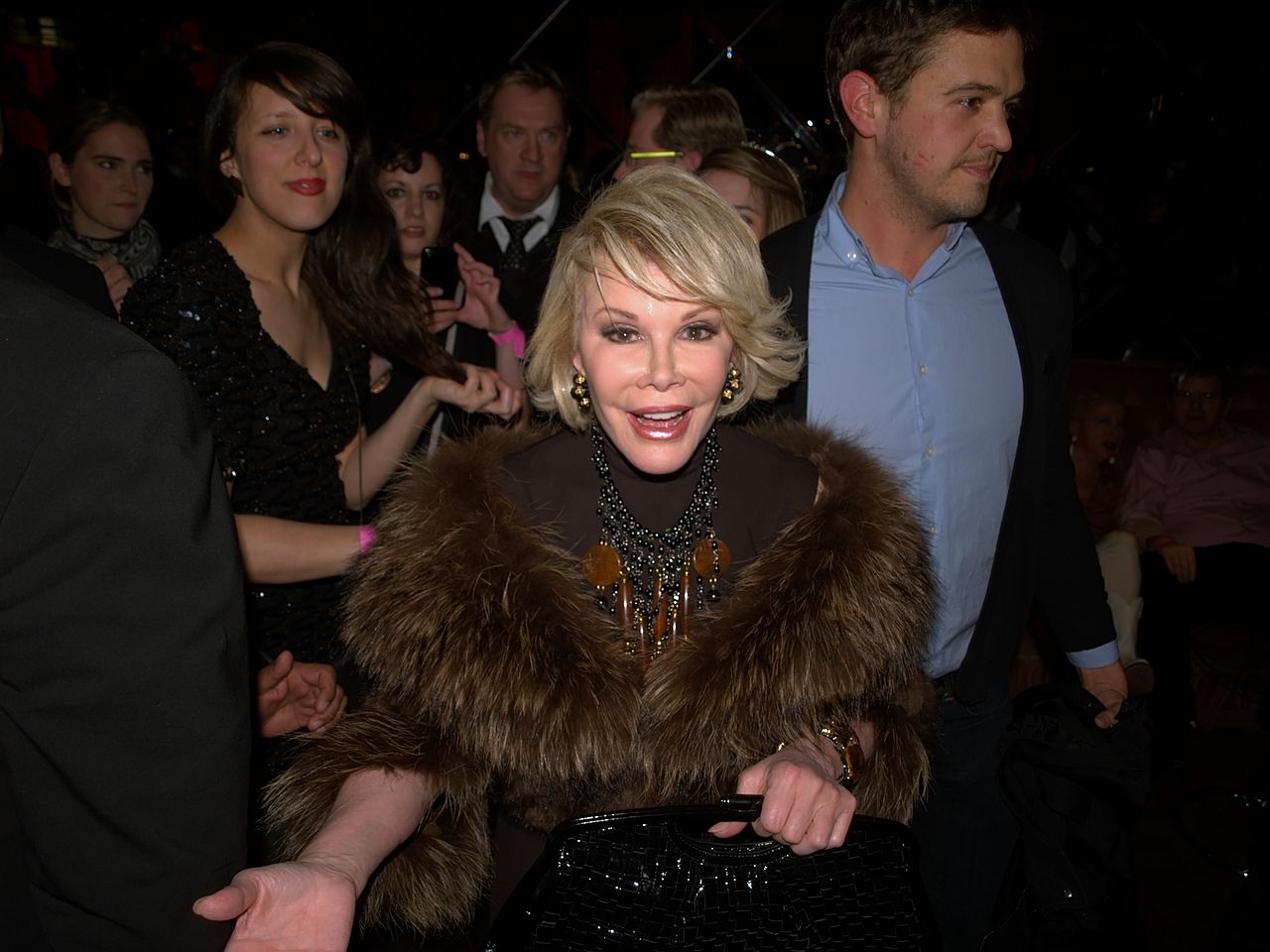
I had an opportunity to meet Joan Rivers at the tail end of my senior year of high school. She told me I was a nice Jewish boy. She then moved along and continued to make some joke which was probably far too inappropriate to quote, then proceeded to flip off the photographer.
What I expected to see in my news feed was a long slew of posts explaining how Joan Rivers was a pioneer for female comics during her life, and how her humor, edgy and R-rated as it was, pushed the boundaries for what was considered acceptable for a female comic in a male-dominated profession.
Instead, I saw posts lamenting the death of a Zionist, not a comic pioneer.
To be sure, Joan Rivers was a Zionist, and made her opinions on Israel and the Israeli-Palestinian conflict very clear this summer during Operation Protective Edge. But that is not why we should be remembering Joan. She was the first woman to have a daily talk show on a major network when she started The Late Show Starring Joan Rivers, and was the first commentator on the red carpet before award shows alongside her daughter, Melissa.
Joan was a pioneer as a comic and as a feminist, but, instead, we seem to pass judgment on her as a Zionist and for the pro-Israel rant she delivered a few short months before her death.
Rivers was not the only one to receive this special treatment. Maya Angelou, who passed away this past spring, and Nelson Mandela, who passed away last December, both received the opposite treatment for making comments that were deemed pro-Palestinian, and were almost villainized post-mortem for their comments, leaving aside the incredible work they both did. Instead of being heralded, they were shunned.
When we talk about famous people after their death, it seems, we rush to promote one, and, sometimes, only one, idea that they espoused, and rush to pass judgment on them based on that one criterion. I mourn Joan Rivers not because of her rants against CNN and BBC, but because she was a famous comic who made herself known in a world where the odds were stacked against her as both a Jew and as a woman in post-World War II America.
When we minimize these great figures to small identities of “pro-Israel” or “anti-Israel” or “pro-Palestinian” (with the assumption that, for some reason, one cannot be both pro-Israel and pro-Palestinian), we erase their identities to fit our own small, subjective categories, and erase lifetimes of activism, scholarship, and art. We erase the narratives these great figures left in their wake and project our own politicized narratives onto them instead. In doing so, we lose sight of what work these figures actually did for our society.
That is not to say that these figures were not political in their own right—all of them had their own moments of political activism. But when we disregard the contributions they made, we discredit them and the work they did, be it combating apartheid in South Africa, racism and misogyny in the United States, or even, at a most basic level, providing us with entertainment in some form.
Indeed, this also speaks volumes about pro-Israel activism: if we have become so polarized so as to celebrate a woman who, though a Zionist, was far better known for so many other important things, and use her death as an excuse to belittle those who disagree with us, then we need to also reexamine not what we stand for as much as how we stand for it. If we can only mourn a Zionist, and if we can only do it by slandering those with whom we disagree or deem, in some way, non-Zionist, then we have lost the ability to look at the world through multiple lenses, to the detriment of the many other lenses we possess. This lens is no less important than any of the others, to be sure, but we can never judge a human being using only one.
If we are not able to look past our agreement or disagreement on one of many topics on which we evaluate a person, then we fail at perhaps one of the most basic measurements of being able to function in our multicultural, inter-sectional society. We must remember not only the people who leave us, but the ways in which they should be remembered: if we are only able to remember and harp on one aspect, we are forgetting why they were important to our society in the first place.
Amram Altzman is a student at List College.

